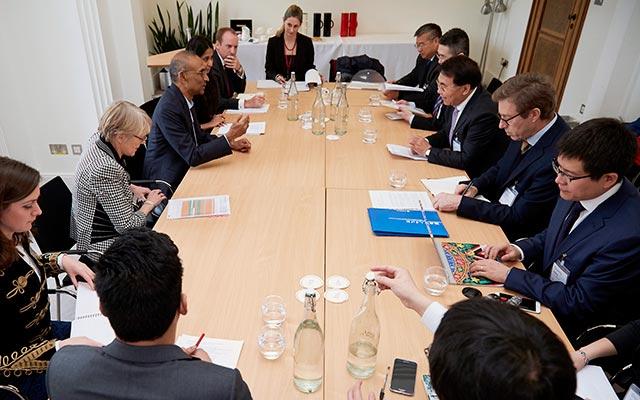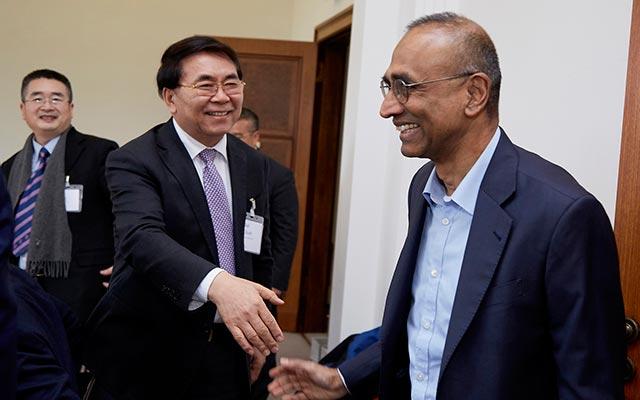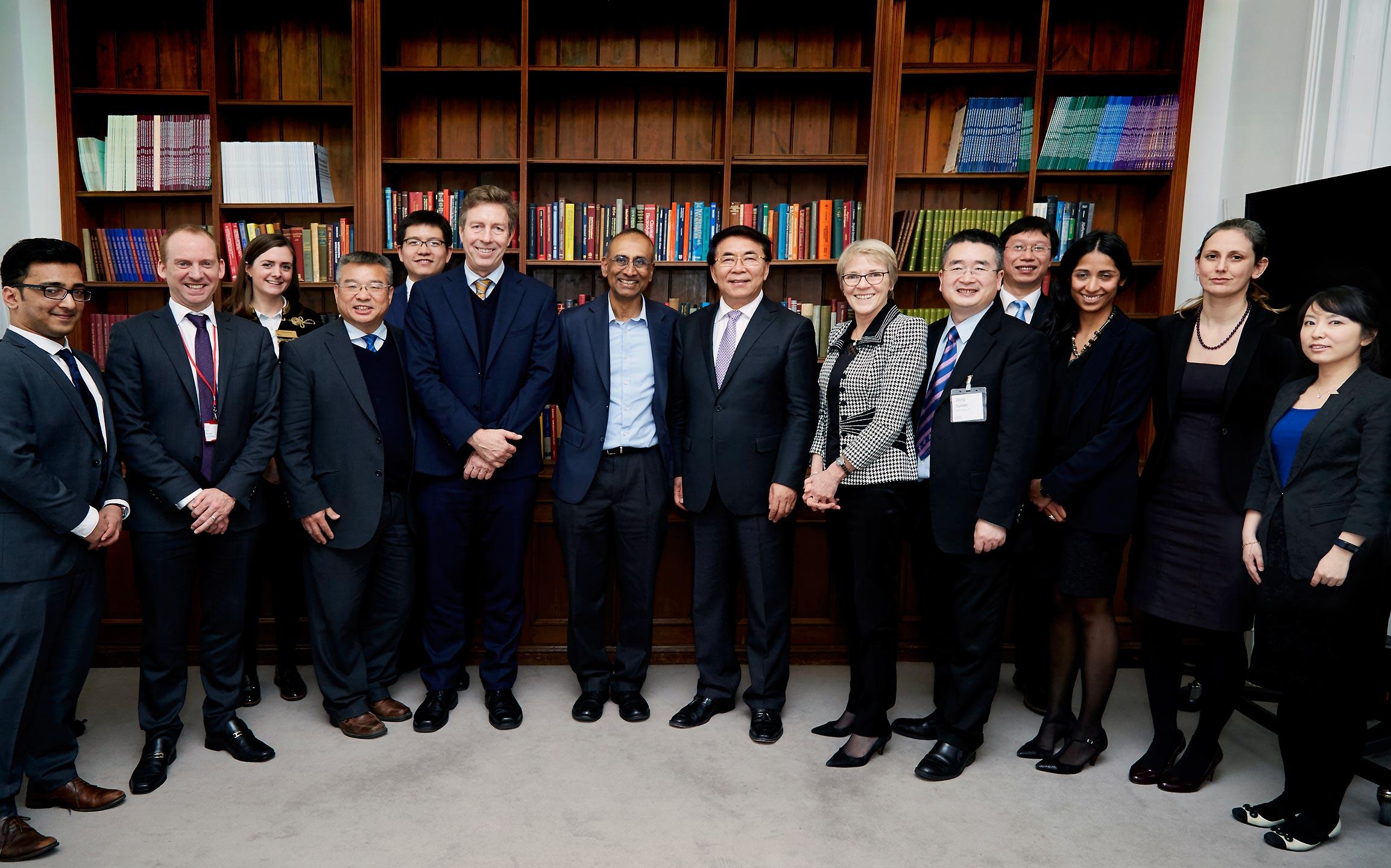LONDON – The UK-based Royal Society and The World Academy of Sciences (TWAS) will evaluate options for working together to build scientific strength in the developing world following a high-level meeting in London.
![Royal Society President Venkatraman Ramakrishnan (left) received a gift from Bai Chunli, president of TWAS and the Chinese Academy of Sciences. [Photo: The Royal Society]](/sites/default/files/inline-images/rs_twas_presidents_gift_270217_0.jpg) Royal Society President Venkatraman Ramakrishnan and other top officials welcomed a delegation headed by TWAS President Bai Chunli to the Society's London headquarters on Monday 27 February. During a 45-minute conversation on mutual interests and goals, the leaders agreed to initiate staff discussions in weeks ahead.
Royal Society President Venkatraman Ramakrishnan and other top officials welcomed a delegation headed by TWAS President Bai Chunli to the Society's London headquarters on Monday 27 February. During a 45-minute conversation on mutual interests and goals, the leaders agreed to initiate staff discussions in weeks ahead.
Among the key areas for both organisations may be initiatives focused on advanced scientific training in sub-Saharan Africa and North-South scientific exchanges.
"Science is an increasingly global undertaking," Ramakrishnan said after the meeting. "In a world where we are faced with challenges that do not respect borders, closer relationships between academies such as TWAS and the Royal Society are increasingly important. This meeting was an important effort to foster further interactions."
"TWAS has a long relationship with the Royal Society, and we have had great admiration for its exceptional leadership in global science," Bai said. "It is natural that the two academies should seek to share their expertise and their networks in the interest of promoting research in Africa and the broader developing world."
Bai also serves as president of the influential Chinese Academy of Sciences (CAS), and he was elected to the Royal Society in 2014. In his visit to the academy, he discussed cooperation between those two academies as well as with TWAS.
The British government has made a deep commitment to working with developing countries to address a range of critical development challenges. A centerpiece of this commitment is the new Global Challenges Research Fund, which is providing £1.5 billion between 2016 and 2021 for cutting-edge research, scientific capacity-building both in the UK and developing countries, and supporting research in response to emergencies.
President Ramakrishnan's delegation also included Julie Maxton, executive director; Rapela Zaman, director of international affairs; Paul McDonald, director of grants; Natasha Bevan, head of international grants; Ryan Ahmed, international grants manager; and Caroline Dynes, international policy adviser.
President Bai's delegation included Cao Jinghua, director general of the CAS Bureau of International Cooperation; Tan Ge, first secretary for science and technology at the Embassy of the People's Republic of China in the United Kingdom; Jiang Sunan, minister counsellor for science and technology, also at the embassy; Ningning Jiang, deputy-head of general office at the CAS Bureau of International Cooperation; Du Xiaomeng, CAS Bureau of International Cooperation; and Edward Lempinen, TWAS public information officer.
TWAS and the Royal Society have had a collaborative relationship since TWAS was founded in 1983. Today, there are more than 65 scientists globally who are Fellows of both academies.
+++++
The Royal Society, founded in 1660, is one of the world's oldest scientific bodies. It also counts among the most elite and accomplished. It's core mission is to recognise, promote, and support excellence in science and to encourage the development and use of science for the benefit of humanity. The academy has played a part in some of the most fundamental, significant and life-changing discoveries in scientific history, and its members today count among the world's most high-impact researchers, across many fields.
The World Academy of Sciences for the advancement of science in developing countries (TWAS), works to advance innovation and sustainable development through research, education, policy and diplomacy. TWAS, a global science academy, has nearly 1,200 elected Fellows from more than 90 countries; 15 of them are Nobel laureates. TWAS annually offers more than USD1 million in research grants and over 500 PhD and postdoctoral fellowships to laboratories and scientists in the developing world. It receives long-term financial support from the government of Italy and the Swedish International Development Cooperation Agency. It was a progamme unit of UNESCO.




